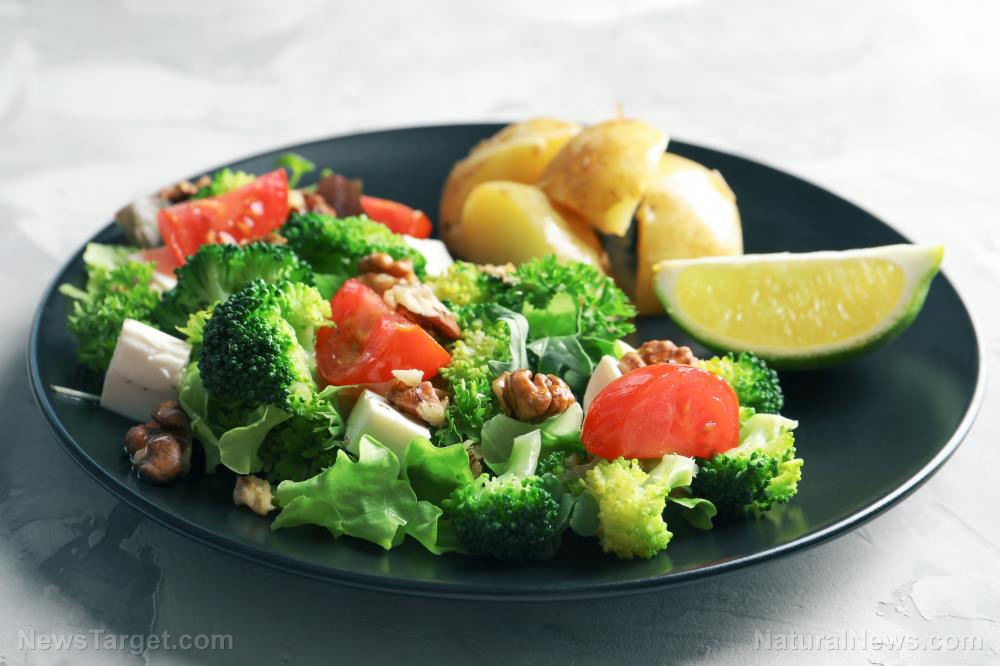
The study, which was published in the journal Science Translational Medicine, was conducted by researchers from the Lund University Diabetes Centre (LUDC) in Sweden.
What is sulforaphane?
Sulforaphane is a sulfur-rich compound found in cruciferous vegetables like broccoli and cabbage. However, in these vegetables, the compound comes in the inactive form glucoraphanin that belongs to the glucosinolate family of plant compounds.
Sulforaphane is activated when glucoraphanin comes into contact with a family of enzymes called myrosinase. These enzymes, which are involved in the defense response of plants, are only released and activated when a plant is damaged. This means cruciferous vegetables need to cut, chopped, or chewed to release myrosinase and activate sulforaphane.
Raw vegetables are full of sulforaphane. According to a study, raw broccoli had ten times more sulforaphane than cooked broccoli. To optimize sulforaphane levels when cooking, steam vegetables for only one to three minutes.
Always cook cruciferous vegetables below 284 degrees Fahrenheit (140 degrees Celsius). Exceeding this temperature may decrease the levels of glucosinolates such as glucoraphanin, so don't boil or microwave cruciferous vegetables. Eat these foods raw or lightly steamed to maximize their sulforaphane content.
Sulforaphane and fasting blood glucose levels
In the LUDC study, Annika Axelsson and her colleagues first observed the effects of sulforaphane on rats. The researchers noted that once the compound was applied to cultured liver cells, sulforaphane reduced the production of glucose. After the compound was administered to rats with Type 2 diabetes, the compound helped improve liver gene expression and shifted it to a healthier state.
The test results suggest that sulforaphane helped lower the amount of glucose produced by cultured liver cells. The compound also helped reverse abnormal gene expression in the rat livers.
Once the animal study concluded, the LUDC researchers then observed the effects of broccoli sprout extract on 97 obese participants with Type 2 diabetes. The volunteers had poor control of their blood glucose levels. The extract was administered in a powdered form that had 100 times the amount of sulforaphane is found in broccoli.
The individuals who were given broccoli extract "showed a significant reduction in fasting blood glucose levels compared to those who didn’t consume it." The fasting blood glucose in the participants given the extract was reduced by 10 percent, unlike the individuals in the other group.
The bodies of the participants who took the broccoli sprout extract were able to control the glucose level and reduce glucose production. (Related: Broccoli sprouts found to have significant impact in the treatment of type 2 diabetes.)
Anders Rosengren, an assistant professor at the University of Gothenburg in Sweden, believes that the results of the study can be used to develop new treatments for Type 2 diabetes.
Type 2 diabetes is the most common form of diabetes and it makes up over 90 percent of diagnosed cases. When left uncontrolled, Type 2 diabetes may result in complications like heart attack, kidney failure, and strokes. The Centers for Disease Control and Prevention (CDC) also warned that Type 2 diabetes may cause blindness and nerve damage.
The health benefits of sulforaphane
The sulforaphane in cruciferous vegetables offer the following health benefits.
It can help prevent cancer.
Sulforaphane and other related phytochemicals may help prevent cancer. Studies suggest that phytochemicals help treat and prevent different types of cancer.
The Breast Cancer Research Program reports that sulforaphane can boost the production of other enzymes in the body that can eliminate carcinogens before they damage healthy cells.
It fights free radicals.
Oxidative stress, which is often caused by exposure to free radicals from pollution, sunlight, and toxins, can damage healthy cells. Sulforaphane in cruciferous vegetables can help protect cells against normal oxidative injury.
Additionally, sulforaphane protects DNA from cancer-causing molecules. The compound can change the DNA structure to reduce the risk of mutations, which is beneficial because DNA is vulnerable to mutations. When left unprotected, DNA mutations may combine and cause cancer.
Foods rich in sulforaphane
These cruciferous vegetables are full of sulforaphane.
- Brussels sprouts – Brussels sprouts are rich in sulforaphane. Steam Brussels sprouts with a bit of water to reduce the loss of the beneficial compound.
- Cabbage – There are many varieties of cabbage, but red and Savoy cabbage have the highest amount of sulforaphane. Cooking results in loss of the compound and it is best to consume cabbage raw. Add raw cabbage to salads or sandwiches.
- Kale – Aside from sulforaphane, kale is chock-full of vitamins A, C, and K. Add kale to salads and sandwiches or make kale chips if you want a healthier alternative to potato chips.
Consume cruciferous vegetables rich in sulforaphane to naturally lower your blood sugar if you have Type 2 diabetes.
Sources include:
Please contact us for more information.























